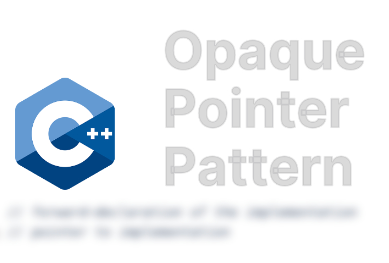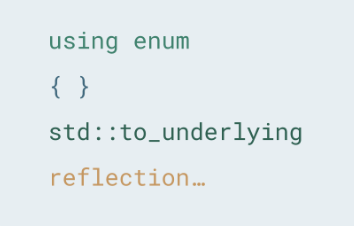Temporarily Dropping a Lock: The Anti-lock Pattern -- Raymond Chen
 In C++, it's common to use RAII types like
In C++, it's common to use RAII types like std::lock_guard to manage synchronization primitives, ensuring a lock is acquired at object creation and released at destruction. However, a less common but useful pattern is the "anti-lock," which temporarily releases a lock and reacquires it later, useful in scenarios where you need to drop a lock while performing certain operations, like calling out to other components to avoid deadlocks.
Temporarily Dropping a Lock: The Anti-lock Pattern
by Raymond Chen
From the article:
There is a common pattern in C++ of using an RAII type to manage a synchronization primitive. There are different versions of this, but they all have the same basic pattern:
- Creating the object from a synchronization object: Locks the synchronization object.
- Destructing the object: Unlocks the synchronization object.
These types go by various names, like
std::,lock_ guard std::, orunique_ lock std::, and specific libraries may have versions for their own types, such as C++/WinRT’scoped_ lock winrt::and WIL’sslim_ lock_ guard wil::(which you thankfully never actually write out; just userwlock_ release_ exclusive_ scope_ exit auto).One thing that is missing from most standard libraries, however, is the anti-lock.
The idea of the anti-lock is that it counteracts an active lock.

 JSON is a widely-used format for data exchange, but in C++, handling JSON efficiently can be challenging. While current solutions like simdjson offer high-speed processing, upcoming features in C++26, such as powerful reflection, promise to simplify and accelerate the serialization and deserialization of JSON, making it both faster and more convenient for developers.
JSON is a widely-used format for data exchange, but in C++, handling JSON efficiently can be challenging. While current solutions like simdjson offer high-speed processing, upcoming features in C++26, such as powerful reflection, promise to simplify and accelerate the serialization and deserialization of JSON, making it both faster and more convenient for developers. We’ve seen formatting for simple classes and more complicated types. Spencer Collyer finishes his series by showing us how to apply specific formatting to existing classes.
We’ve seen formatting for simple classes and more complicated types. Spencer Collyer finishes his series by showing us how to apply specific formatting to existing classes. Previously, we explored a basic implementation of
Previously, we explored a basic implementation of  After reading this article, you should understand the basics of the opaque pointer pattern and how you can implement it using
After reading this article, you should understand the basics of the opaque pointer pattern and how you can implement it using  The evolution of the C++ language continues to bring powerful features that enhance code safety, readability, and maintainability. Among these improvements, we got changes and additions to enum class functionalities across C++17, C++20, and C++23. In this blog post, we’ll explore these advancements, focusing on initialization improvements in C++17, the introduction of the using enum keyword in C++20, and the std::to_underlying utility in C++23.
The evolution of the C++ language continues to bring powerful features that enhance code safety, readability, and maintainability. Among these improvements, we got changes and additions to enum class functionalities across C++17, C++20, and C++23. In this blog post, we’ll explore these advancements, focusing on initialization improvements in C++17, the introduction of the using enum keyword in C++20, and the std::to_underlying utility in C++23. In a recent talk at C++OnSea, Arne Mertz highlighted common misuses of guidelines, including the Rule of Five. This discussion prompted me to reflect on a recurring pattern I've observed in C++ classes that explicitly default constructors and destructors, leading to unexpected behaviors with move semantics.
In a recent talk at C++OnSea, Arne Mertz highlighted common misuses of guidelines, including the Rule of Five. This discussion prompted me to reflect on a recurring pattern I've observed in C++ classes that explicitly default constructors and destructors, leading to unexpected behaviors with move semantics.